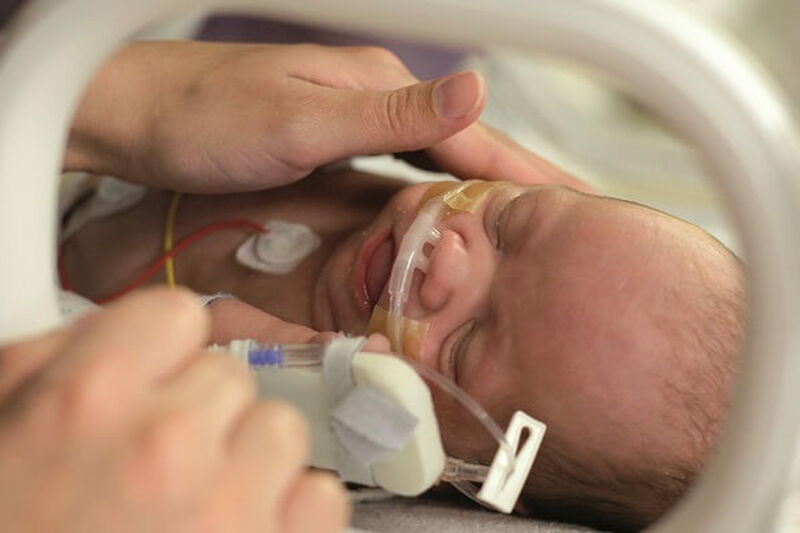Understandably this was highly frustrating and distressing for parents, who were separated and unable to be cot side with their baby for hours on end; especially for those who had to rush to catch the last bus from the hospital to the car park, or leave early to care for other children. This, combined with staff frustrations provided the trigger and driving force for staff to push for change.
Evidence based research on the benefits and importance of keeping parents and their babies together was collated by staff. This highlighted that parents ultimately know their baby the most, and play a key part of a baby’s care on a neonatal unit.
As well as this, the unit also found research that suggested parents are unlikely to breach confidentiality in these situations, focusing the most on their own baby. All this evidence reinforced the case that parents should be allowed to stay cot side.
Claire Tregonning, a senior staff nurse on the unit, stated that a few significant factors were influential around this time – one being the unit’s work and progress on the Bliss Baby Charter.
Claire stated that the Baby Charter was key in highlighting the standards and overall principles of family-centred care the unit should be striving to achieve, which was key in conversations with ward managers and neonatal consultants to support the case for change.
These discussions were timely, with a move to a bigger unit imminent. An increase in the size of the unit also helped, with increased space cot side.
There was a great deal of change in this period and Claire commented ‘lots of that was due to work on the [Bliss] accreditation’.
Overall, parent feedback, staff research, movement to a bigger space and the unit’s work on the Bliss Baby Charter resulted in a change of attitudes and unit culture. As a result, a new policy of unrestricted access for parents was implemented, allowing parents to stay cot side with their baby throughout all ward rounds and nurse handovers.
Now, parents are encouraged to be present at these rounds and are empowered to be involved, being asked ‘what’s the story so far?’ in relation to their baby’s time on the unit. In addition to this, the unit no longer uses the word ‘visiting’ to reinforce that parents are not seen as ‘visitors’ in relation to their baby.
Other family members are also welcomed at these times within reason, as long as staff are aware. Within the parent welcome information booklet there is also information about the importance of maintaining confidentiality.
The impact of this change has been huge for the unit culture and parents, as well as the introduction of new staff which overall has helped with changing mind sets and attitudes.
This is a great example of how health professionals can strive for family-centred care on their unit, helping to empower parents and keeping them with their baby as much as possible. This ties in with Principle One of the Bliss Baby Charter strengthening the social, developmental and emotional needs for both parents and their baby.
